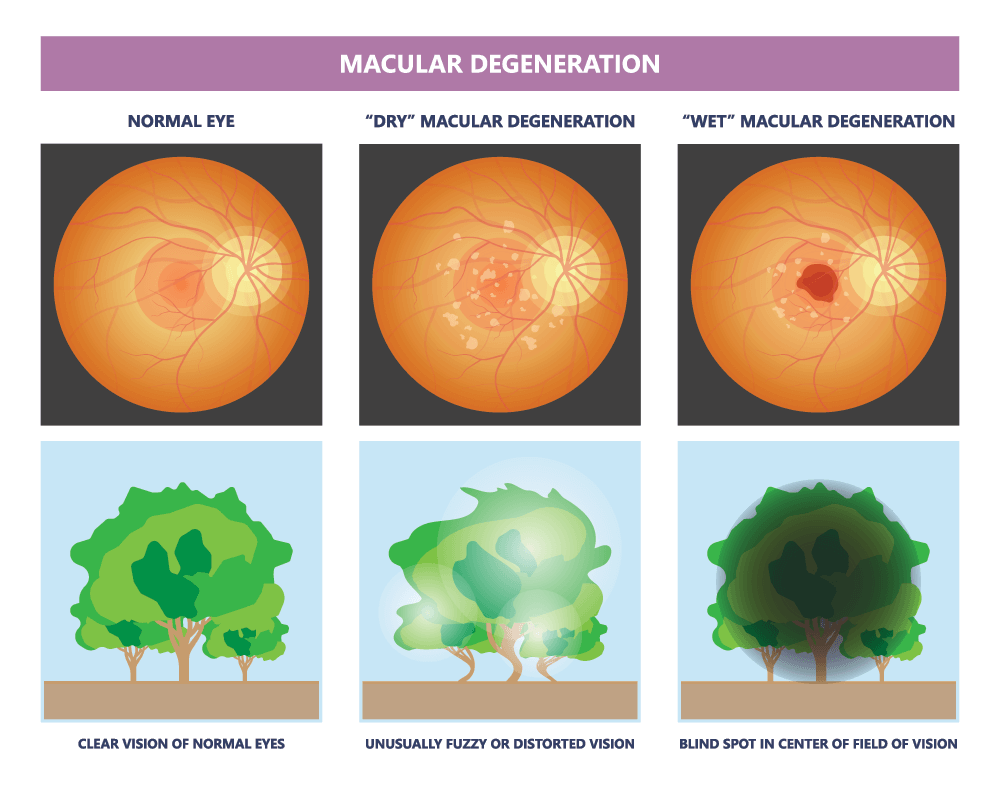Macular Degeneration
Macular degeneration, also known as age-related macular degeneration (AMD) is a common condition in older adults and the leading cause of vision loss and blindness in people over the age of 65.
Macular degeneration affects the macula, the part of the retina responsible for the crisp, detailed vision needed for reading or driving. As we age, the tissue in the eye responsible for central vision slowly begins to deteriorate, which can significantly affect a patient’s quality of life.
Macular degeneration can be classified as either wet (neovascular) or dry (non-neovascular). Dry macular degeneration is the more common diagnosis and is considered to be an early stage of the disease.
This type of disease usually develops as a result of aging and thinning of macular tissues and the depositing of pigment within the macula, while wet macular degeneration is the more serious form of the disease and involves new blood vessels developing beneath the retina.
Patients with macular degeneration may notice gradual changes to their vision, including shadowy areas in the central vision, or fuzzy and distorted vision.
Although there is no cure for this condition, there are several treatment options available to help patients manage symptoms and preserve vision, including intraocular injections, photodynamic therapy, vitamin and mineral supplements, and more.

